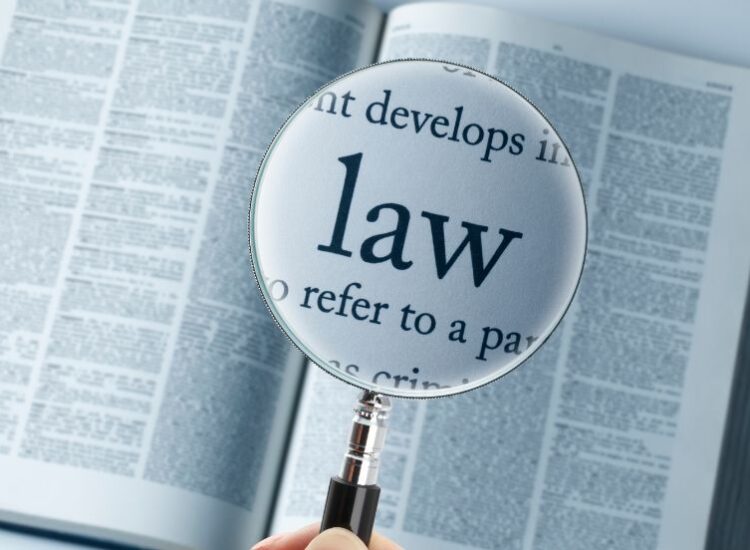The Role of Liability Coverage in Protecting Your Enterprise
Business insurance plays a pivotal role in protecting companies from unexpected challenges and financial losses. Whether you’re a small startup or an established enterprise, having the right types of business insurance is essential for long-term stability and growth. This comprehensive guide explores why business insurance is necessary, the different types of coverage available, and how to select the right plan for your organization.
Toc

Why Business Insurance is Essential
Operating a business involves numerous risks, ranging from natural disasters and accidents to legal and financial liabilities. Every day brings its own set of challenges, and while success often depends on careful planning and execution, unexpected events can derail even the most well-prepared businesses. Business insurance acts as a crucial safety net, shielding your company from potential financial burdens caused by these unforeseen events. It provides peace of mind, allowing you to focus on growth and operations rather than worrying about the “what-ifs.” Without adequate insurance, even the smallest incident—like a minor lawsuit, property damage, or an interrupted project—could lead to significant financial strain, potentially jeopardizing the survival of your business.
Protecting Your Assets
One of the most critical benefits of business insurance is the protection it provides for your assets. Your physical office space, equipment, vehicles, and inventory represent significant investments that are essential for your business to function. For example, a fire or a flood could destroy vital equipment or inventory, and without insurance, covering those costs out of pocket could be devastating. Business insurance covers damages caused by fires, floods, storms, theft, or vandalism, ensuring you aren’t left with unbearable repair or replacement expenses.
Additionally, some policies go a step further by covering loss of income if your business operations are interrupted due to these events. For instance, if a major storm damages your property and you’re unable to operate for several weeks, business interruption insurance can provide funds to cover ongoing expenses like rent, salaries, or loan payments. This kind of coverage ensures you can stay afloat during tough times, giving you a chance to recover and rebuild without a heavy financial burden.
For businesses with specialized tools or expensive machinery, equipment breakdown insurance can also be a key coverage option. It helps cover the repair or replacement of critical equipment that might fail due to mechanical issues, power surges, or operator error. These protections ensure that you can keep your operations running smoothly without significant downtime.
Safeguarding Employees and Customers
Business insurance isn’t just about protecting your assets; it’s also about ensuring the safety and well-being of your employees and customers. Employees are the backbone of any business, and protecting them is both a legal obligation and a moral responsibility. For example, worker’s compensation insurance provides coverage for medical expenses, rehabilitation costs, and lost wages if an employee is injured or becomes ill due to work-related activities. Whether it’s an office worker who develops repetitive strain injuries or a construction worker hurt on-site, worker’s compensation offers support during tough times while also helping your business comply with legal requirements in most states and countries.
Similarly, general liability insurance is essential for protecting your business from claims made by customers, visitors, or even vendors who might suffer injuries or property damage while on your premises. Imagine, for instance, a customer slipping on a wet floor in your store or a delivery person getting injured while unloading goods at your warehouse. Without liability insurance, your business could face medical bills, legal fees, or costly settlement payments that could eat into your finances. Liability insurance covers these costs, sparing your business from financial harm and ensuring that claims don’t disrupt your operations. By protecting both employees and customers, business insurance helps build trust, strengthens your reputation, and fosters a secure environment for everyone involved.
Enhancing Credibility
An often-overlooked benefit of business insurance is the credibility it provides. Holding the appropriate insurance coverage signals to clients, customers, and business partners that you are a responsible and reliable organization. Certain contracts or partnerships may even require proof of insurance before they agree to work with you. For example, landlords may require business renters to have property insurance, and clients in service industries may insist on professional liability coverage for their protection. Insurance not only protects your business but also gives others the confidence to engage with you.
Additional Coverage Options
In addition to core policies, there are specialized business insurance options designed to meet unique industry needs. For service-based businesses, professional liability insurance (or errors and omissions insurance) is invaluable, covering claims of negligence, mistakes, or failure to deliver promised services. For example, if a consultant’s advice leads to financial loss for a client, professional liability insurance can help cover legal and settlement costs.
1. https://dalatfarmer.vn/mmoga-comprehensive-guide-to-finding-the-best-business-insurance-near-me/
2. https://dalatfarmer.vn/mmoga-a-comprehensive-guide-to-small-business-insurance/
3. https://dalatfarmer.vn/mmoga-the-ultimate-handbook-on-financial-planning-for-entrepreneurs/
4. https://dalatfarmer.vn/mmoga-the-ultimate-toolkit-for-scaling-operations-in-growing-companies/
5. https://dalatfarmer.vn/mmoga-understanding-business-insurance-liability/
Similarly, product liability insurance is essential for businesses that manufacture or sell goods. It protects against claims of defective products causing harm, such as a malfunctioning appliance or a contaminated food item. Product liability insurance can shield your business from lawsuits and provide resources to manage recalls or settlements.
In the digital age, cyber liability insurance has also become a must-have for businesses handling sensitive customer data or relying heavily on technology. This coverage protects against data breaches, cyberattacks, and the financial fallout from stolen information or disrupted operations. For instance, if your business’s customer database is compromised, cyber insurance can help cover costs related to notifying customers, recovering lost data, and managing reputational damage.
For businesses with company vehicles, commercial auto insurance provides coverage for accidents, damage, or theft involving your business cars or trucks. It’s a critical safeguard for industries that rely on transportation, from delivery services to construction companies.
No matter the size or type of your business, having the right insurance coverage ensures you are prepared for the unexpected. It’s not just an expense—it’s an investment in the long-term stability and resilience of your business. Whether you’re protecting assets, ensuring the safety of employees and customers, or preparing for potential legal disputes, business insurance is an essential tool that supports your growth and success in an unpredictable world.
Types of Business Insurance Coverage
Understanding the different types of business insurance available is essential to protecting your company and ensuring long-term success. Since every business has unique operations, the type and level of coverage required can vary based on factors like industry, size, and operational scope. A well-rounded understanding of these insurance options can help you make informed decisions and avoid unnecessary financial risks.

General Liability Insurance
General liability insurance is one of the most commonly purchased policies for businesses of all sizes. It provides protection against third-party claims related to bodily injury, property damage, and even advertising injuries, such as claims of copyright infringement. For example, if a customer slips and falls in your store or office, general liability insurance can cover the resulting medical expenses, legal fees, and even potential settlements or judgments. This type of policy is often considered the foundation of business insurance and is especially important for businesses that interact frequently with clients, customers, or the public.
Property Insurance
Property insurance is designed to protect your business’s physical assets, including buildings, equipment, inventory, and furniture. This type of insurance covers damages caused by events such as natural disasters, fires, vandalism, or theft. For instance, if a fire damages your office or warehouse, property insurance can help you repair or replace the affected property without incurring substantial out-of-pocket costs. Some policies even include coverage for business interruption, helping your company recover lost income while operations are temporarily halted. This ensures that your business can bounce back quickly and continue serving customers despite unexpected setbacks.
Professional Liability Insurance
For service-based businesses, professional liability insurance—also known as errors and omissions (E&O) insurance—is a critical safeguard. It provides protection in cases where your business is accused of negligence, mistakes, or inadequate services that result in financial loss or harm to a client. This type of insurance is particularly important for professions such as law, healthcare, consulting, accounting, and IT services. For example, if a consultant provides inaccurate advice that leads to a client’s financial loss, professional liability insurance can help cover legal defense costs and potential damages. This policy is an essential investment for maintaining trust and security within client relationships.
By understanding and investing in the right insurance policies, you can protect your business from a wide range of risks, ensuring financial stability and peace of mind as you focus on growth and success.
How to Choose the Right Business Insurance
Selecting the right business insurance policy can be challenging, but it’s crucial for ensuring your business is adequately protected against unexpected events. Whether you’re a small startup or an established company, having the right coverage can safeguard your operations, assets, and employees. To help you make an informed decision, here are some steps to guide you through the process:
1. https://dalatfarmer.vn/mmoga-the-ultimate-toolkit-for-scaling-operations-in-growing-companies/
2. https://dalatfarmer.vn/mmoga-comprehensive-guide-to-finding-the-best-business-insurance-near-me/
3. https://dalatfarmer.vn/mmoga-a-comprehensive-guide-to-small-business-insurance/
4. https://dalatfarmer.vn/mmoga-the-ultimate-handbook-on-financial-planning-for-entrepreneurs/
5. https://dalatfarmer.vn/mmoga-understanding-business-insurance-liability/

Assess Your Risks
Start by identifying and assessing the potential risks specific to your business. Every industry has its own set of challenges and vulnerabilities. For instance, a construction company may face higher risks related to workplace injuries, property damage, and equipment theft, while a retail store might focus more on protecting its inventory, managing liability for customer accidents, or even addressing risks related to cyber threats. Understanding your unique challenges will help you determine which types of insurance policies, such as general liability, property insurance, or workers’ compensation, are most relevant for your business. Don’t overlook emerging risks, such as data breaches, as businesses are increasingly reliant on technology.
Analyze Your Budget
While business insurance is a critical investment, it’s important to ensure the premiums fit comfortably within your budget. Take the time to evaluate your financial limits early in the process. Work with insurance providers to customize a policy that balances comprehensive coverage with affordability. Keep in mind that opting for the cheapest plans may not offer sufficient protection and could leave you vulnerable in a crisis. On the flip side, overly extensive coverage might strain your budget unnecessarily. Carefully reviewing deductibles, premium costs, and policy limits will help you achieve the right balance. Remember, insurance is about risk management, so think long-term rather than focusing solely on upfront costs.
Work with Trusted Providers
Selecting a reputable and experienced insurance provider can significantly simplify the process of choosing and managing your policies. Trusted insurers have the expertise to tailor coverage to your specific business needs and can help you understand any potential gaps in your protection. They can also guide you through the claims process, ensuring you receive support when you need it most. Before committing, research potential providers by reading reviews, checking credentials, and asking for recommendations from other business owners in your industry. Building a relationship with a provider you trust can save you time and stress as your business grows and your insurance needs evolve.
By following these steps, you can navigate the complexities of business insurance and find a policy that safeguards your operations while giving you peace of mind. Taking the time to assess risks, analyze your budget, and work with trusted providers will ensure your business is prepared for whatever comes its way.
The Long-Term Benefits of Business Insurance
Investing in business insurance is not just about mitigating risks; it’s about providing invaluable peace of mind to business owners. Running a business comes with its fair share of uncertainties, but with the right insurance coverage, you can focus on growing and scaling your enterprise without constantly worrying about the financial consequences of unforeseen events like property damage, lawsuits, or employee injuries.
Business insurance protects your assets, including physical property, equipment, and inventory, ensuring that unexpected losses don’t derail your progress. Beyond asset protection, it also nurtures trust and credibility with employees and customers, showing them that you prioritize safety, stability, and responsibility. Having insurance in place can even help attract talented employees, who view robust coverage as a sign of a reliable and forward-thinking employer.
Whether you own a small startup or manage a large corporation, ensuring you have the right insurance policies tailored to your unique needs is one of the smartest and most strategic decisions you can make. From general liability and professional indemnity to workers’ compensation and cyber insurance, there are various types of coverage to suit your business’s specific risks. By choosing customized policies that address your requirements, you’ll not only safeguard your business but also create a solid foundation for long-term growth and prosperity. Business insurance is more than a safety net—it’s a tool for resilience, stability, and success.










